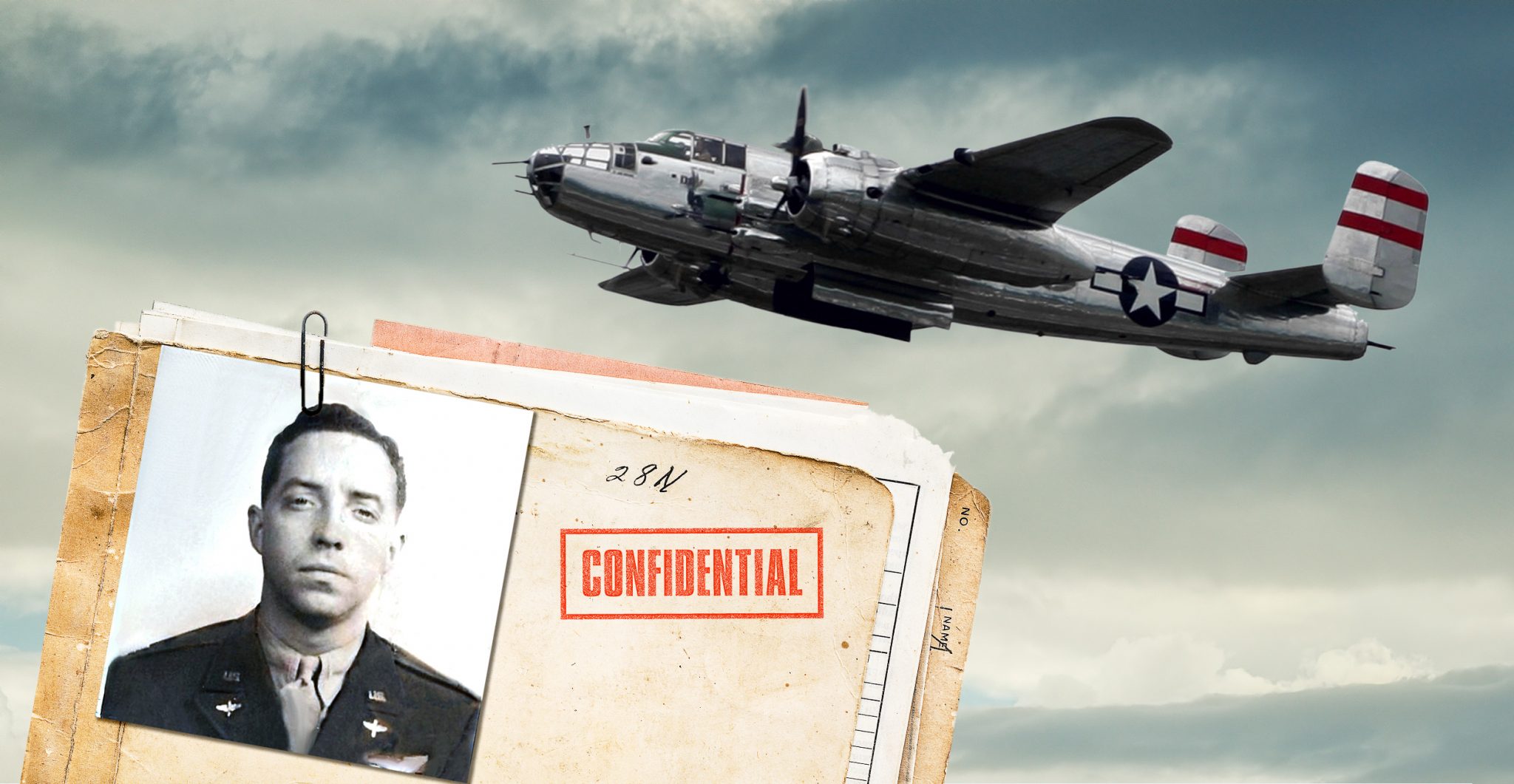The loss of life and the destruction caused by conflict is one of the greatest tragedies of war. A more personal tragedy is that many true heroes go unsung. In the chaos, deeds of valor and selfless sacrifice are forgotten, never heard of in the first place, or, worse, covered up and buried.
Captain Robert Trimble of the United States Air Force saved hundreds of prisoners of war from certain death in WWII. But the truth of his actions was kept under wraps. The facts almost went to his grave with him until he spoke about his covert missions to his son in the final years of his life.
Robert Trimble had already flown 35 successful missions in his B-24 bomber by the time victory was in sight for the Allies. He was assigned one more mission, deep in Soviet territory.
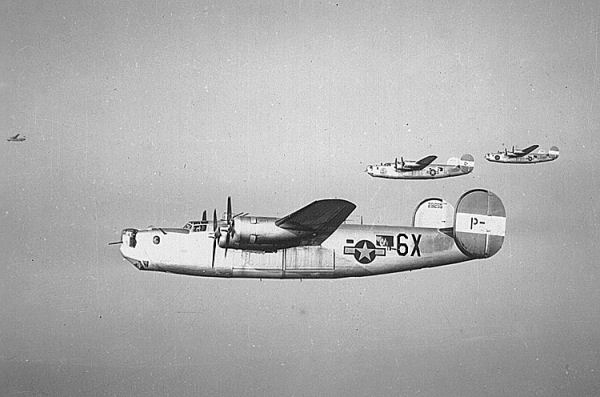
The mission was to take place in February 1945. His superior officers made it sound like this final mission would be a simple one with minimal risk: he was to fly out recently repaired airplanes.
However, when he got to Poltava Airbase in Ukraine (one of three airbases the Americans were allowed to use in Soviet territory), his commanding officer revealed to him the real details of his mission. What seemed like a straightforward task ended up being an extremely dangerous, top-secret endeavor.
Trimble was ordered to work with American counterintelligence agents in Soviet territory with the aim of evacuating American POWs. He was well aware of the risks — he would certainly be killed if the Russians found out what he was doing.
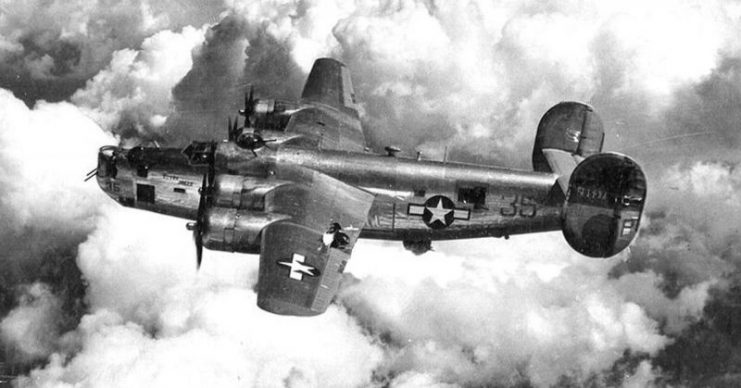
While initially resentful about being duped into such a high-risk undertaking, he changed his mind after rescuing his first load of prisoners. After that, he was enthusiastic about his mission, despite its dangerous nature.
https://youtu.be/Hf-3qhd499A
Even though Britain, France, the USA, and the Soviet Union were allies on paper, their ties of friendship were in reality paper-thin. Stalin distrusted his Western counterparts immensely. Any Westerners in Soviet territory were automatically assumed to be spies. If discovered, they were either sent to prison camps or made to “disappear.”
The situation facing Western POWs in Nazi prison camps in Poland was grim. Even when the camps were liberated by advancing Soviet forces, Western prisoners would be turned out into the harsh Polish winter without guns, food, any form of supplies, or any way of getting home.
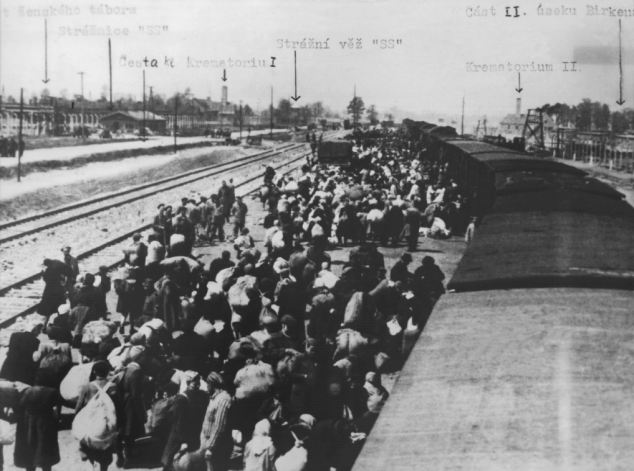
As for Soviets taken prisoner by the Germans, Stalin considered them traitors and deserters. He simply had them shot or worked them to death in his infamous gulags.
There were other prisoners in these camps too: Jews, of course, and French women used as forced laborers and sex slaves by the Nazis.
Trimble’s first encounter with the people he was charged with rescuing totally changed his perspective on everything.
He received word from an agent that there were a number of American and British prisoners of war hiding in a barn in southeast Poland. With the aid of his diplomatic passport, he covertly made his way there.
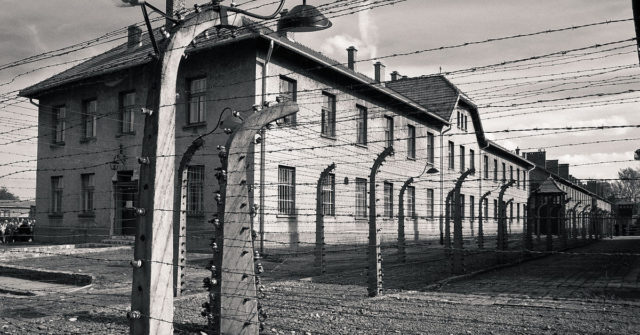
He was horrified at the scene that greeted him: emaciated men huddled together, wrapped in filthy rags full of fleas and lice, on the brink of death. He managed to hide the 23 men in a horse-drawn cart and smuggled them into the city of Lviv.
He bribed Soviet guards with US dollars (as valuable as solid gold in Soviet territories) and got the men onto a train that would take them to the West, and freedom.
In Lviv, he came across more British troops who had been set free from a German prison camp by the Soviets. These men were starving to death and begging for food on the streets. Once again risking his life, Trimble managed to smuggle them to the British embassy in Moscow.
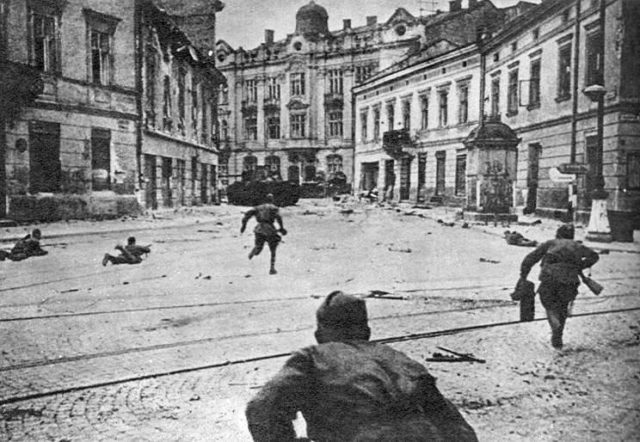
For the next six weeks, Trimble would embark on many more of these missions. Sometimes he would carry up to $15,000 – an absolute fortune in that time and place – hidden in pockets all over his clothes, to use as bribes. He ended up rescuing many more prisoners of war, including 400 French women who had been kept as slaves by the Nazis.
However, his missions were brought to an abrupt halt when the Soviets, increasingly suspicious of American activity in their territory, forced Poltava Airbase to shut down. No Americans were allowed in or out.
By caving so easily to Soviet demands, Trimble felt that the top brass were selling out the American troops. He became increasingly angry at and disillusioned with his superiors.
As it turned out, he was not able to go on any more rescue missions. WWII came to an end in May 1945, and Poltava Airbase was shut down soon afterward. All Western troops had to leave Soviet territory.
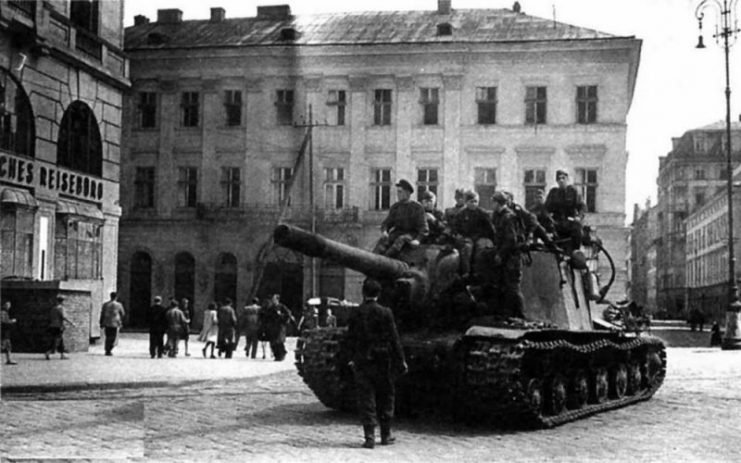
Trimble was awarded the Bronze Star for his service at Poltava, but was admonished for comments he had made in reports, saying things like “shame on America.”
In contrast, the French had no reservations about awarding him top honors for what he had done. He received the Croix de Guerre, one of France’s highest military decorations for acts of extraordinary valor.
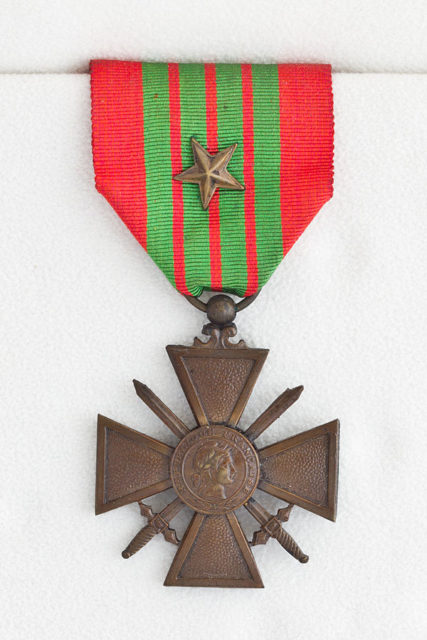
Because of the top-secret nature of his missions deep in Soviet territory, his deeds were never publicized. He never told anyone about what he had done in Poland either – not until the very end of his life.
Read another story from us: Georges Loinger, Veteran WWII Rescuer of Jewish Children, Dead at 108
In 2006, when he was 86 years old, he mentioned something about his missions to his son, Lee. His son spent the next few years interviewing his father about his missions in Poland, eventually compiling what he had learned into a book, Beyond the Call.
Robert Trimble died in 2009, aged 89. Fortunately, his heroic deeds did not die with him. He will always be remembered as a true hero who went above and beyond the call of duty to save many innocent lives.
